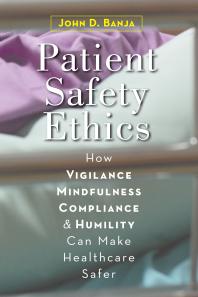Rudolph Matas Library of the Health Sciences
Library Guides
Library Guides
 Patient Safety Ethics : How Vigilance, Mindfulness, Compliance, and Humility Can Make Healthcare Safer
by
John D. Banja
Patient Safety Ethics : How Vigilance, Mindfulness, Compliance, and Humility Can Make Healthcare Safer
by
John D. Banja
Conclusion: A literature search performed in only one database will, on average, lead to a loss of more than half of the available literature on a topic.
Every healthcare facility can immediately begin to eliminate infections, like MRSA.
...
1. Use hand-hygiene precautions for all patient contacts.
2. Make antimicrobial soap and alcohol sanitizer readily available where needed.
3. Use antimicrobial soap or alcohol sanitizer in intensive care units.
4. Identify colonized and infected patients through surveillance cultures.
5. Isolate colonized patients.
6. Use disposable gowns, gloves, and masks when caring for isolated patients.
7. Clean the patient care environment thoroughly.
8. Use disposable or dedicated equipment. Clean all shared equipment with 70% isopropyl alcohol swabs.
9. Flag colonized patients' medical records to ensure isolation if re-admitted.
10. Control antibiotic use.
Sources: Centers for Disease Control and Prevention, Society for Healthcare Epidemiology of America,
and Pittsburgh Regional Healthcare Initiative
Brennan TA, Leape LL, Laird NM, et al. Incidence of adverse events and negligence in hospitalized patients: results of the Harvard Medical Practice Study I. N Engl J Med 1991;324:370-7.
Leape L, Brennan T, Laird N, et al. The nature of adverse events in hospitalized patients. Results of the Harvard Medical Practice Study II. N Engl J Med 1991;324:377-84.

